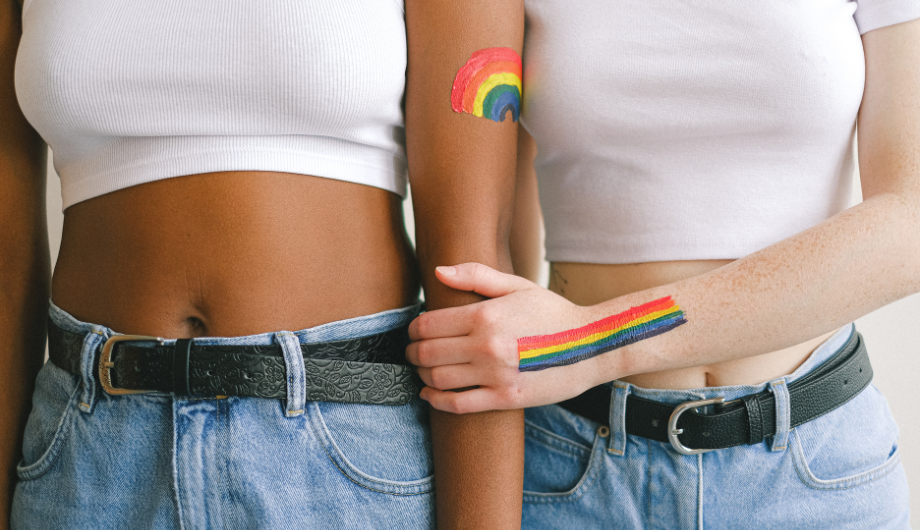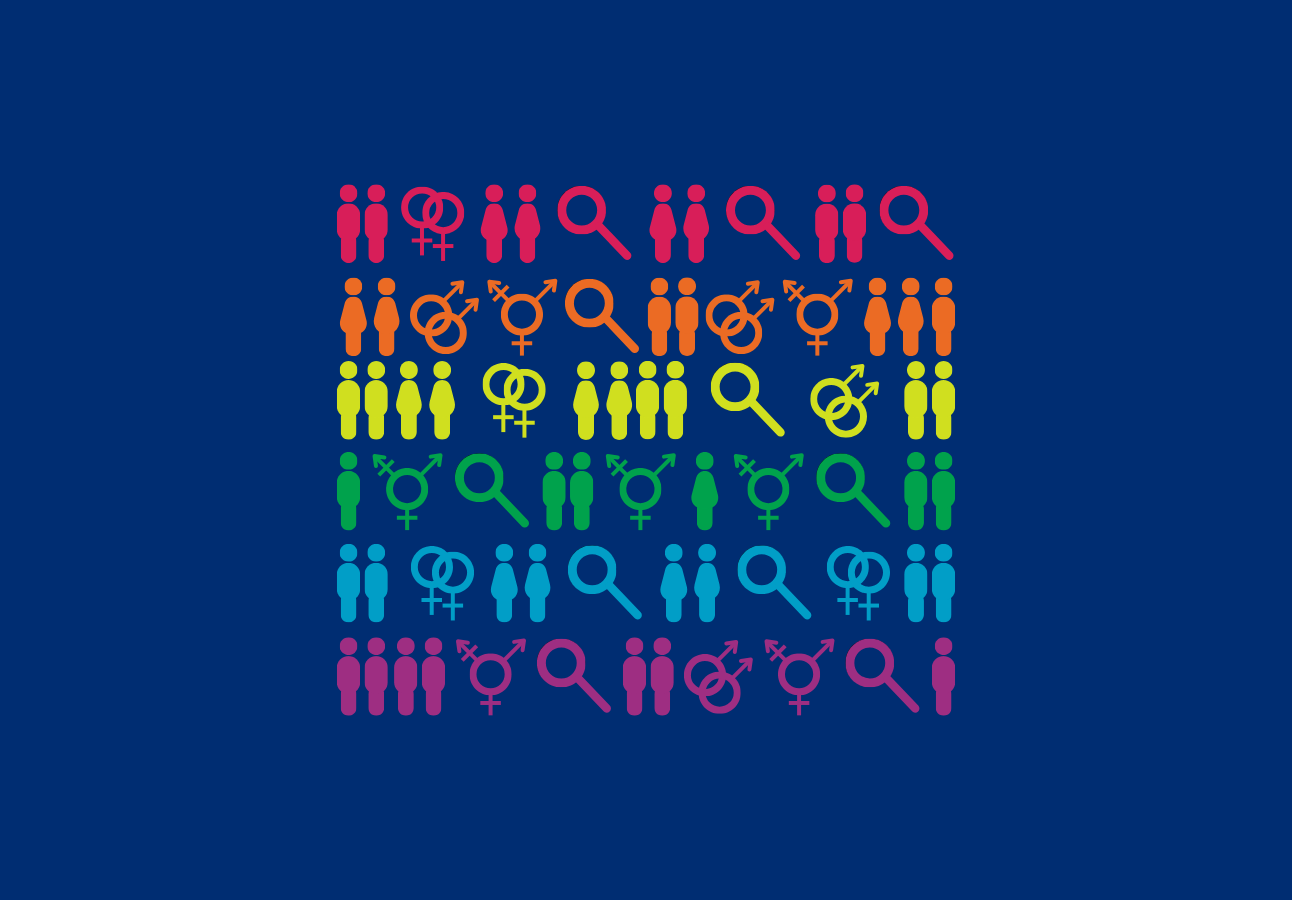
Six tips to support LGBT+ parents who have experienced domestic abuse
Millie Fry, a specialist LGBT+ Domestic Abuse Caseworker and Idva at Galop, shares her essential tips for professionals working with LGBT+ parents who are survivors
1. Understand that families come in all shapes and sizes, including ‘rainbow families’
When assessing victims/survivors, asking non-judgemental questions about their families in the same way we would ask heterosexual clients will go a long way to developing an understanding of the dynamics of abuse for the family in question.
Remember that LGBT+ people may not approach DV/A services as they worry that they will not be supported or welcome. A rainbow family may also have experienced other forms of gatekeeping or prejudice (from police, schools, local authorities, other charities or community family services) so have already faced isolation and barriers to getting support, and potentially are at increased risk due to this. On top of this, perpetrators can take advantage by threatening to ‘out’ a victim/ survivor or threatening to take their children away by ‘outing’ them to services. Encouraging a help-seeker and making it obvious that your service not only recognises them but has the knowledge and tools to effectively provide support, can dramatically empower a family to receive the services they need.
When it comes to specific DV/A work with LGBT+ families, support workers should complete their risk assessment as normal; if in the case of unclear dynamics, situational couple violence or Violent Resistance from the victim/survivor, a detailed assessment can help identify clearly the primary victim/survivor and primary perpetrator. This is crucial for any meaningful or effective DVA intervention. Professionals can also call the National LGBT+ Domestic Abuse Helpline if additional specialist advice is desired.
2. Assumptions- DON’T make them
As simple as this point may be, it’s often surprising how often and easily we can all make assumptions about our clients. As VAWG sector workers there can be a temptation to assume the gender and/or sexual orientation of a victim/survivor, or that of their partner. A lot of people assume that LGBT+ people or same sex partnerships do not have children. As we know already, assumptions can mean that a victim/survivor stops engaging with a service or can mean that important details of a case are missed by professionals, including whether there’s any children who might also be at risk. Assumptions can therefore have serious implications for the safety of the people we are supporting, LGBT+ parents included.
3. Language- DO think about it
Language makes up a huge part of our everyday experience. From brief exchanges on the street with a stranger, to ongoing communication with a DV/A client, the way we are seen and the way we see ourselves is often framed by the language that is used around and about us. victims/survivors are no exception and may be already sensitive to incorrect language use due to past negative experiences.
Using the correct pronouns for someone is not just important, it’s essential, as is using the correct pronouns for their partner or family.
Using non-gendered language, or language which is inclusive of gender and sexual fluidity is validating and can make a client much more comfortable. An example of this could be using ‘parent’ rather than ‘mum’ or ‘dad’.
If you do make a mistake or feel you’ve misused a word or language, don’t panic! We are all allowed to make mistakes and learn from them. It’s important to acknowledge, apologise and, if appropriate, have a conversation about it. When it comes to the use of language, intention can make all the difference and it’s often very easy to tell between a genuine mistake and bad intention.
4. Our own prejudices as DV/A workers
DV/A workers often have a political understanding of abuse, and this can make us better and more intuitive responders to our clients. However, it’s also important to be aware of our own prejudicial attitudes and how this can play out. As a DV/A worker, do we automatically doubt male experience of abuse due to their gender? When supporting a lesbian survivor of IPV, does that cause us to make assumptions about the nature and seriousness of the abuse she has suffered? When supporting a victim/survivor of familial abuse based on homophobia or transphobia, do we recognise this (as we should) as domestic abuse? Do we doubt the story of a trans women due to harbouring pre-existing ideas about trans people? These prejudices can make up further barriers to LGBT+ people accessing the support they need.
Asking ourselves questions like this can be difficult, and the answers might be hard to admit to ourselves. Training on Gender Sexuality Relationship Diversity (GSRD), available from Galop, can go a long way to debunking prejudicial attitudes, and empowering DV/A workers to be more inclusive in their approach. Remember that it is possible to be critical without becoming punitive.
5. Parental Rights & Responsibility in rainbow families
Custody and parental rights can often be a part of threatening or coercive behaviour within LGBT+ IPV, so it is important for DV/A workers to identify the dynamics of the family. LGBT+ parents are subject to the same PRR systems as heterosexual parents. It’s important to note that while LGBT+ partners may have an equal parental role, only one partner may have legal PRR for the child or children, and this can impact any abuse occurring and steps that can be taken to support the family. It’s also important as support workers to be familiar with different routes into parenthood for LGBT+ partners, including (but not limited to) adoption, fostering, IVF, surrogacy and step-parenthood.
As with heterosexual families, there is a range of statutory and specialist support that help including; children’s services, MASH, Marac and CAFCASS, Childline and family law advice.
6. Rainbow families are intersectional families
Lastly, like all families, do keep in mind that rainbow families are a part of lots of different communities including faith or religion, BAME, cultural beliefs and practices, and this doesn’t stop being the case with rainbow families. Having an intersectional approach can benefit all clients and improve their wellbeing and safety. Support staff should recognise that these intersecting aspects may pose unique risk to the client, or act as another barrier to support them, as well as appreciating the positives of diversity. This work often serves as a testament to the vibrancy of difference within families and communities.
Stonewall Housing has produced additional risk assessment guidance which can be used alongside the Dash
About Millie
Millie Fry is a specialist LGBT+ Domestic Abuse Caseworker and Idva at Galop, and has also worked on the National LGBT+ Domestic Abuse Helpline. She has worked for many years in advice and advocacy, including within mental health roles and the domestic and sexual violence sectors, and has been a specialist LGBT+ practitioner for three years. Millie is passionate about empowerment within oppressed or traumatised communities and they aim to continue this work.
You may also be interested in


